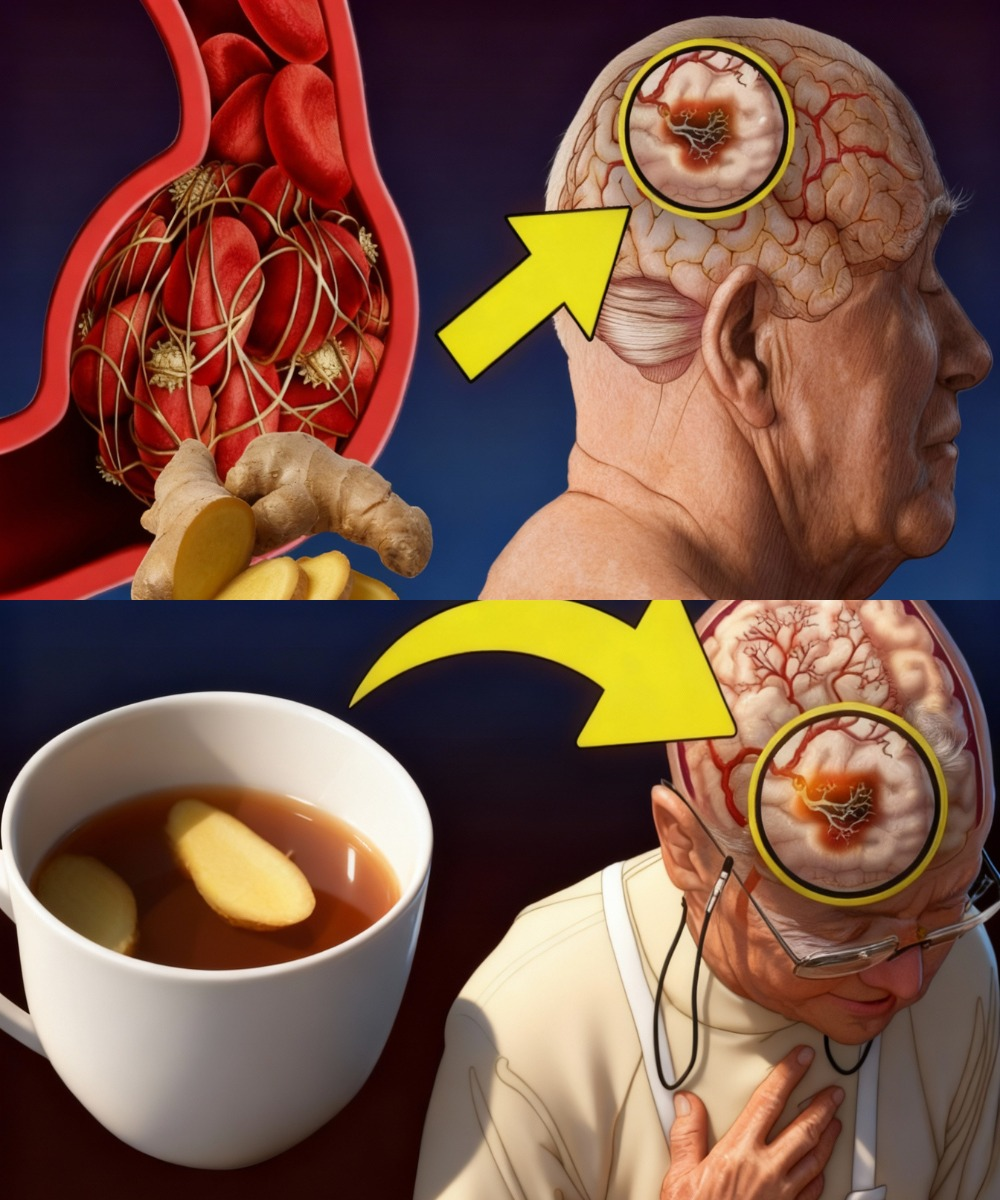In the constant search for longevity and heart health, we are often led down paths of complex supplements and prescription routines. Yet, some of the most profound, time-tested health secrets are often simmering quietly on our stovetops. If you are focused on optimizing your cardiovascular system, enhancing circulation, and seeking a powerful, natural defense against blood clots, it’s time to look beyond the pharmacy and rediscover the potent, warming power of Ginger Tea.
We are talking about a daily ritual that has been shown in biochemical studies to possess properties that can actively support healthy blood flow, reduce inflammation, and even demonstrate effects similar to widely used blood-thinning medications—all without the harsh side effects that often accompany conventional drugs.
➡️ Prepare to dedicate a few minutes to this deep dive. You are about to uncover the scientific reasons why a simple cup of ginger tea may be a cornerstone of your future heart health strategy.
For those prioritizing a non-pharmaceutical approach to wellness, understanding the relationship between inflammation, circulation, and blood clotting is paramount. Ginger, with its fiery, ancient root, provides a sophisticated, multi-targeted solution. It’s not just comforting; it’s a daily shield for your entire circulatory system. By the end of this read, you will have the exact blueprint for integrating this powerhouse tonic into your life and understanding the remarkable biochemistry that makes it so effective.
The Clotting Crisis: Inflammation, Viscosity, and the Role of Gingerol
Blood clots (thrombosis) are a major health concern, often leading to serious cardiovascular events like heart attacks and strokes. While essential for healing injuries, inappropriate clotting within vessels is often triggered or exacerbated by chronic, low-grade inflammation and poor circulation.
I. The Gingerol Advantage: Targeting Platelet Aggregation
The star component in ginger is gingerol (and its dried counterpart, shogaol). These compounds are where ginger earns its reputation as a powerful natural anticoagulant.
🩸 Inhibition of Clot Formation: Research indicates that gingerol actively works to inhibit what is called platelet aggregation. Platelets are the blood cells responsible for clotting. By discouraging platelets from sticking together and forming unnecessary clumps, ginger helps maintain the blood’s smooth flow (low viscosity). This mechanism is similar to how over-the-counter anti-clotting medications operate, making ginger a compelling natural ally.
The Natural Buffer: Unlike some synthetic anti-clotting agents, ginger works gently and systemically. It supports the body’s natural balance, helping prevent unwanted clotting without compromising the body’s ability to heal wounds appropriately.
II. Fighting the Root Cause: Inflammation
Blood clots are often a symptom of underlying cardiovascular stress, frequently driven by chronic inflammation.
🔥 Systemic Anti-Inflammatory: Ginger is one of nature’s most potent natural anti-inflammatories. Gingerol blocks key inflammatory pathways in the body (such as COX and LOX pathways). By reducing the inflammation that irritates the inner lining of blood vessels (the endothelium), ginger reduces the stimulus for inappropriate platelet activation.
Vascular Health: A reduction in chronic vascular inflammation leads to healthier, more elastic blood vessel walls, which are less prone to damage and subsequent clot formation.
III. Circulation: The Warming Effect
Ginger’s immediate, warming sensation is a clear sign of its immediate impact on blood flow.
Natural Vasodilation: Ginger acts as a mild vasodilator, meaning it encourages blood vessels to relax and open up. This improves overall circulation, lowers the pressure on vessel walls, and ensures blood moves freely throughout the extremities. Better flow is the fundamental defense against stagnation and clot formation.
The Daily Ritual: Brewing the Optimal Ginger Tea Tonic
To reap the deep-acting, systemic benefits of ginger, consistency and correct preparation are vital. You must create a potent decoction, not just a weak infusion.
Ver continuación en la página siguiente
